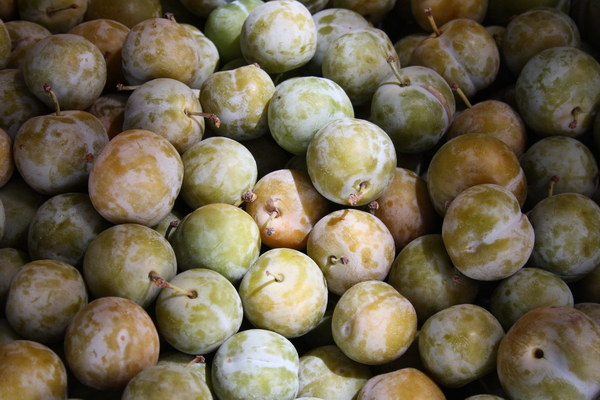The Surprising Renal Benefits of Bitter Melon A Nutritional Insight
In the world of traditional medicine, the use of natural remedies for health and wellness has been a cornerstone of many cultures. One such remedy that has been gaining attention in recent years is the use of bitter melon for renal health. Bitter melon, also known as karela or Momordica charantia, is a vegetable that is renowned for its distinct bitter taste and numerous health benefits.
The idea of using bitter melon to boost renal health is not new. In fact, it has been a staple in traditional Chinese medicine for centuries. The belief is that bitter melon has the ability to clear heat and detoxify the blood, which can help to improve kidney function and overall renal health.
One of the key reasons why bitter melon is believed to be beneficial for the kidneys is due to its high concentration of antioxidants. These antioxidants help to protect the kidneys from oxidative stress, which can lead to kidney damage. Bitter melon is particularly rich in vitamin C, vitamin E, and beta-carotene, all of which have been shown to have protective effects on the kidneys.
Another way in which bitter melon may support renal health is through its potential to help regulate blood sugar levels. Diabetes is a significant risk factor for kidney disease, as high blood sugar levels can damage the kidneys over time. Studies have shown that bitter melon can help to lower blood sugar levels, which may reduce the risk of developing kidney problems in individuals with diabetes.

Additionally, bitter melon contains compounds that may help to reduce inflammation in the body. Chronic inflammation is another risk factor for kidney disease, as it can lead to the formation of scar tissue in the kidneys, known as fibrosis. By reducing inflammation, bitter melon may help to prevent the progression of kidney disease.
While the evidence supporting the use of bitter melon for renal health is promising, it is important to note that more research is needed to fully understand its effects. Some studies have been conducted, and they have shown mixed results. For example, a study published in the journal Diabetes Care found that bitter melon extract could significantly reduce blood sugar levels in patients with type 2 diabetes, which may indirectly benefit kidney health. However, other studies have yielded less conclusive results.
Incorporating bitter melon into one's diet is a relatively straightforward process. The vegetable can be found in many grocery stores and can be prepared in a variety of ways, including stir-fries, soups, and curries. It is important to note that the bitter taste of the melon can be quite strong, so it is often recommended to balance the taste with other flavors.
It is also worth mentioning that while bitter melon may have potential renal benefits, it is not a substitute for medical treatment or a healthy lifestyle. Individuals with kidney disease or those at risk of developing kidney problems should consult with a healthcare provider before adding bitter melon to their diet.
In conclusion, the use of bitter melon for renal health is a topic that has sparked interest in the realm of natural remedies. With its high antioxidant content, potential to regulate blood sugar levels, and anti-inflammatory properties, bitter melon may offer some benefits for kidney health. However, further research is needed to fully understand its efficacy. As always, a balanced diet and a healthy lifestyle are key components of maintaining good renal health.









